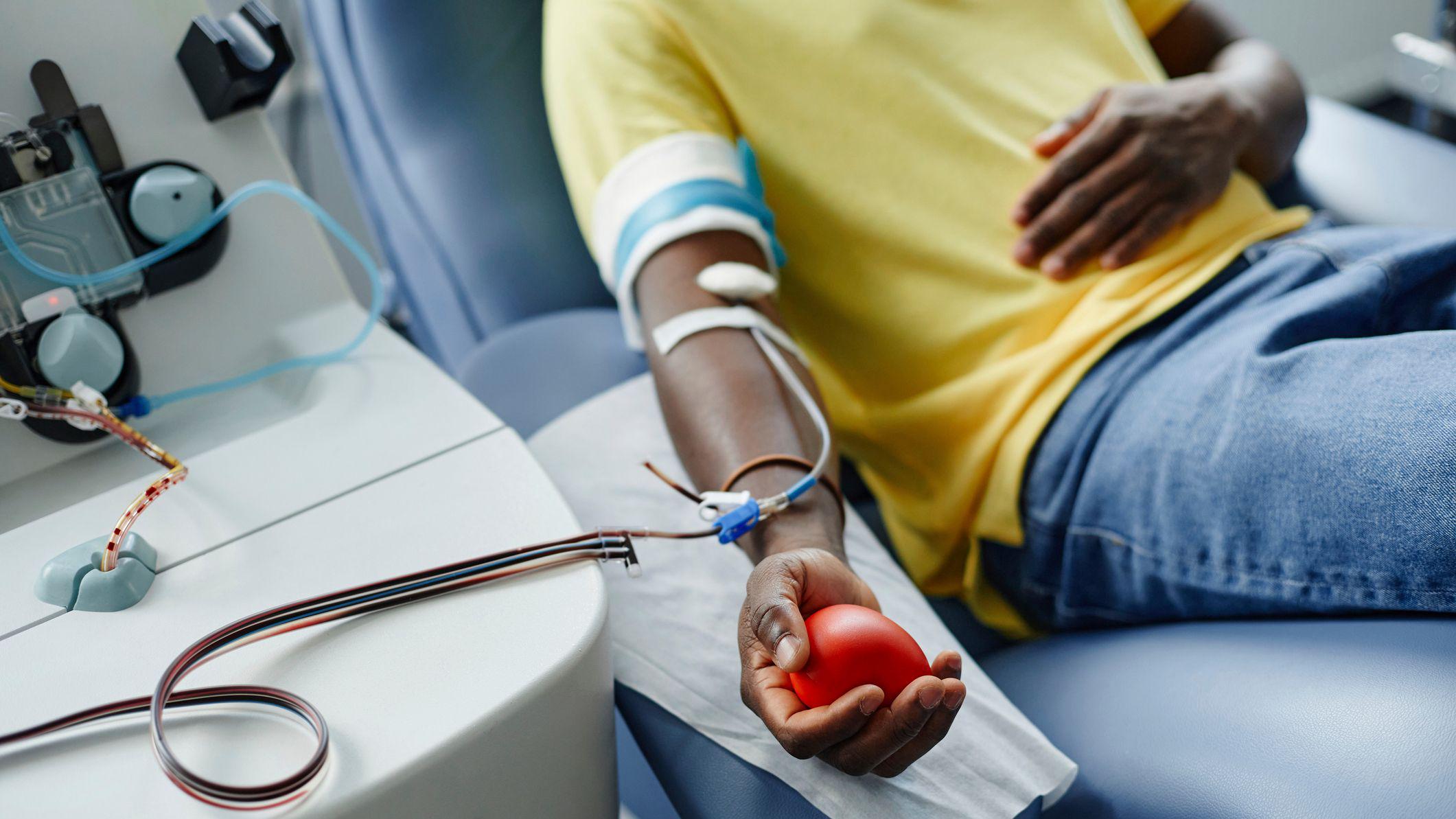Effective communication is crucial in today’s fast-paced world, especially in healthcare. One vital contact number for blood donation services is 03001232323. This number is a direct link for individuals interested in donating blood or seeking information about the donation process. This comprehensive guide will explore the significance of 03001232323, its role in blood donation, and how it intersects with technology and geek culture.
What is 03001232323?

The phone number 03001232323 is primarily associated with blood donation services. When you receive a call from this number, it generally indicates that a representative is reaching out for various purposes:
- Scheduling Blood Donation Appointments: The team may contact you to schedule a convenient time for your next donation.
- Confirming Existing Appointments: They may call to confirm the details if you have previously scheduled a donation.
- Answering Your Questions: The staff can provide information regarding the donation process, eligibility criteria, and upcoming blood drives.
Understanding the purpose behind calls from 03001232323 enhances your experience as a potential donor.
Why is Blood Donation Important?
Blood donation plays a crucial role in saving lives and supporting medical treatments. It is essential for various procedures, including surgeries, trauma care, and cancer treatments. Here are some key points about blood donation:
1. Critical Resource:
- Blood is a vital resource in healthcare; many patients rely on donated blood for survival. Each donation can save multiple lives.
2. Eligibility to Donate:
- To donate blood, you typically need to be healthy, between 17 and 65, and weigh at least 50 kg. The team at 03001232323 can help determine if you qualify.
3. Frequency of Donations:
- Due to differences in iron levels, men can donate every 12 weeks, while women can donate every 16 weeks. Regular donations are essential for maintaining adequate blood supplies.
Preparing for a Call from 03001232323

When you receive a call from 03001232323, being prepared can help you make the most of the interaction. Here are some tips:
1. Have Your Information Ready:
- Please provide your name, address, and any previous donation history. This information will help the staff assist you more efficiently.
2. Know Your Eligibility:
- Familiarize yourself with the basic eligibility requirements for blood donation. If you have medical conditions or a recent travel history, be ready to discuss these.
3. Ask Questions:
- If you have concerns or need clarification, feel free to call for more information. It’s your right to understand the process fully.
Understanding Call Charges for 03001232323
Understanding the costs associated with calling 03001232323 is essential. The charges depend on:
1. Your Phone Provider:
- Different providers have various charging policies. Some may offer free calls, while others may charge standard rates.
2. Type of Phone:
- Charges may differ depending on whether you are using a landline or a mobile phone. Generally, calls to 03001232323 are charged at local rates, but check with your provider for specifics.
Alternative Communication Options

Besides phone calls, you may receive text messages from 07860034984, another contact for blood donation services. Here are some alternative ways to communicate:
1. Text Relay Users:
- If you use a textphone text phone, access the Text Relay service by dialing 18001 03001232323.
2. SMS Assistance:
- You can text 07860034343 for inquiries and assistance related to blood donation.
These alternatives ensure everyone can access vital information, regardless of their communication preferences.
Who Can Donate Blood?
Understanding who can donate blood is crucial for potential donors. Here are the main criteria:
1. General Requirements:
- You must be generally fit and well.
- Age should range from 17 to 65 years.
- Weight should fall between 50 kg and 158 kg.
2. Health Considerations:
- You cannot donate blood if you have:
- Certain types of cancer.
- Specific heart conditions.
- She received blood products after January 1, 1980.
- TI testedpositive for HIV.
- Underwent an organ transplant.
- InjectShe injectedrescribed drugs, including body-building agents.
3. Temporary Deferrals:
- You may need to wait before donating if you:
- Are feeling unwell.
- Are you pregnant, or have you given birth in the last six months?
- HI, I have recently gotten a tattoo or piercing.
- TI traveled to specific countries outside your home country.
If you are uncertain about your eligibility, rcontacting03001232323 can provide guidance.
The Blood Donation Process
Understanding the blood donation process can help alleviate concerns about what to expect. Here’s a step-by-step overview:
Step 1: Registration
Upon arrival at the donation center, you will register your details. The staff will guide you through this initial step, ensuring all necessary paperwork is completed.
Step 2: Health Screening
Before donation, you will undergo a health screening, which includes:
- A brief health questionnaire to assess your eligibility.
- A physical check-up, including blood pressure and hemoglobin tests, is needed to ensure safety.
Step 3: The Donation
You will proceed to the donation area if you pass the health screening. Expect the following:
- The donation takes about 8-10 minutes.
- You will be seated comfortably, and a trained staff member will insert a needle into your arm to collect blood.
Step 4: Post-Donation Care
After donating, you will rest for a few minutes and receive refreshments to help replenish your energy before leaving. This step ensures that you feel well before returning to activities.
The Intersection of Blood Donation and Tech Culture
Blood donation may seem distant from tech and geek culture, but this community has growing awareness and engagement. Here’s how technology is shaping blood donation:
1. Awareness Campaigns
Many tech companies and organizations utilize social media and digital platforms to promote blood donation drives. These campaigns encourage community participation and raise awareness about the importance of donating blood.
2. Gamification of Donation
Innovative tech solutions are emerging to gamify the blood donation process. Apps are being developed that allow donors to track their donations, earn rewards, and compete with friends, making the experience more engaging and motivating for participants.
3. Building Community Connections
Online communities often organize blood donation events, increasing participation and fostering connections among like-minded individuals in the geek culture. These events often utilize platforms like Discord, Reddit, or specialized forums to coordinate efforts and promote participation.
Common Misconceptions About Blood Donation
Several myths surround blood donation that may deter potential donors. Here are some common misconceptions and the facts to dispel them:
Myth 1: Blood Donation is Painful
Fact: The needle used for donation is thin, and most people feel only a minor pinch during the process. Many donors report feeling more discomfort from anxiety than from the actual donation.
Myth 2: Tattoos Prevent Donation
Fact: You can donate blood after getting a tattoo, provided you wait for a designated period (usually four months) to ensure the tattoo is healed properly and there is no risk of infection.
Myth 3: Only Some People Need Blood
Fact: Blood is required for various medical procedures and emergencies, impacting a wide range of Everyrange. It counts and can make a significant difference in someone’s life.
Myth 4: Illness Disqualifies Donation
Fact: You should wait until you are fully recovered to donate, but common colds typically do not prevent you from donating. If you’re unsure, reach out to 03001232323 for clarification.
The Future of Blood Donation
The future of blood donation is promising, thanks to technological advancements and increasing awareness. Here are some trends to observe:
1. Mobile Donation Units
Mobile donation units are becoming increasingly popular, making it easier for people to donate blood within their communities. These units can be tracked using apps linked to services like 03001232323, allowing donors to find a convenient location.
2. Growing Awareness Campaigns
With the rise of social media, awareness campaigns about blood donation are reaching broader audiences. Influencers and community leaders are often involved, significantly increasing donor turnout.
3. Technological Integration
New technologies are being integrated into the blood donation process, enhancing efficiency and user-friendliness. From appointment scheduling via 03001232323 to tracking donation history through apps, technology is revolutionizing how we approach blood donation.
4. Virtual Reality Training
Some organizations use virtual reality to train staff on the donation process, ensuring they are well-prepared to assist donors and address any concerns.
Call to Action: Get Involved!
If you are interested in donating blood, don’t hesitate to call 03001232323 to learn more about your eligibility and schedule an appointment. Your contribution can make a significant difference in someone’s life!
FAQs About Blood Donation and 03001232323
Answer:
The phone number 03001232323 is used for blood donation services. It allows potential donors to schedule appointments, confirm existing bookings, and get answers to any questions related to the blood donation process.
Answer:
To prepare for a call from 03001232323, have your personal information ready, know your medical history, and be prepared to ask any questions you may have about blood donation or your eligibility.
3. Who is eligible to donate blood?
Answer:
To be eligible to donate blood, you generally need to:
- Be between 17 and 65 years old.
- Weigh at least 50 kg (110 lbs).
- Be in good health and free from certain medical conditions.
It’s best to consult with the staff at 03001232323 for specific eligibility criteria.
Answer:
During the blood donation process, you will:
- Register your details.
- Undergo a health screening to assess your eligibility.
- Donate blood, which typically takes about 8-10 minutes.
- Rest and receive refreshments afterward.
5. How often can I donate blood?
Answer:
Men can donate blood every 12 weeks, while women can donate every 16 weeks. This helps ensure your body has enough time to replenish its blood supply.
6. Is it painful to donate blood?
Answer:
Most donors report only a slight pinch when the needle is inserted. The donation process is generally quick and not painful, with many people feeling more discomfort from anxiety than from the procedure itself.
7. Can I donate blood if I have a tattoo?
Answer:
Yes, you can donate blood after getting a tattoo, but you may need to wait for a designated period (usually four months) to ensure the tattoo is healed and there’s no risk of infection.
8. What should I do if I have questions about my eligibility to donate?
Answer:
If you have questions about your eligibility to donate blood, you can call 03001232323 for guidance and clarification based on your medical history.
9. What are the health requirements for blood donation?
Answer:
To donate blood, you should be generally healthy, not suffering from any acute illnesses, and free from certain medical conditions, such as specific cancers or heart issues. The staff at 03001232323 can help assess your eligibility.
10. How can technology improve blood donation?
Answer:
Technology enhances blood donation through the following:
- Mobile donation units for easier access.
- Apps to track donations and schedule appointments.
- Social media campaigns to raise awareness and encourage participation.














The Mystery of 08456021111: Calls That Haunt My Nights - msnmag.co.uk
[…] Also Read: 03001232323 […]